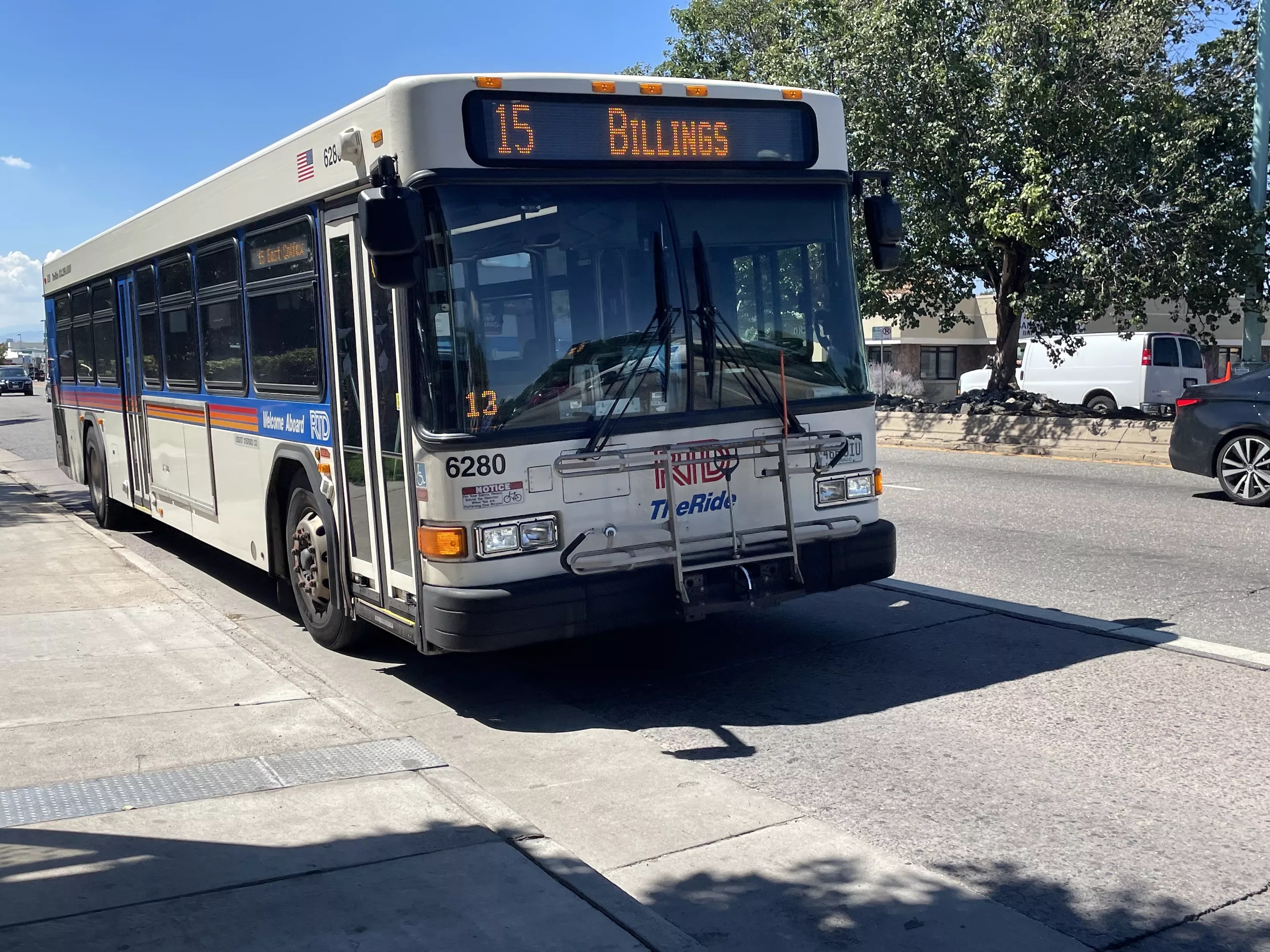
Catie Cheshire

Audio By Carbonatix
The Regional Transportation District and the Colorado Secretary of State’s Office are partnering to provide two more zero-fare days on RTD’s system to promote voter participation.
On Friday, October 28, and Tuesday, November 8 – the day of the midterm election – RTD’s entire system will be completely free, as it was all of August, when RTD held its Zero Fare for Better Air campaign. October 28 is National Vote Early Day, and RTD has made it a zero-fare day to align with the state’s effort to get more people to vote in advance. But just in case a voter waits until the last second, RTD is also free on election day.
RTD Director Julien Bouquet had asked if RTD could provide zero-fare days for the election back in a March board meeting; Director Shontel Lewis also pushed for such a policy. During a July 12 Finance and Planning Committee meeting, RTD officially passed the program.
RTD Director Shelley Cook voted against it, after raising concerns regarding the tradeoff between such an initiative, which will take approximately $714,000 out of RTD’s unrestricted reserve ($356,991 per day for expenses, as well as a one-time, $10,000 marketing campaign), and the reductions to service with which the agency is currently grappling. RTD has $51 million in its unrestricted reserve, out of reserves totaling $457 million.
But Debra Johnson, RTD general manager and CEO, suggested that the election-related zero-fare days be viewed as a pilot program; if the investment doesn’t pay off, the agency isn’t locked in. In the meantime, though, RTD is creating access for a vulnerable population to exercise their constitutional right.
“If we’re able just to remove the barrier for one individual voter, a voter who hasn’t had the ability to vote in the past, that’s huge,” Bouquet said.
A Survey of the Performance of American Elections from MIT found that in 2016, about 30 percent of nonvoters across the country said that a lack of transportation to polls contributed to their decision not to vote; that number grew to 38 for people of color under thirty.
Colorado has a mail-in ballot system, which makes voting easier; an estimated 88 percent of the votes in RTD’s service area in 2020 were submitted by mail or dropped in ballot boxes. But election officials continue to try to eliminate any obstacles.
“Partnerships like this make Colorado one of the best places to vote,” Paul López, clerk and recorder for the City and County of Denver, says of the RTD plan. “Our culture of participation has made us one of the highest turnout states in the country, but we don’t stop there. Whether it’s free-fare RTD days, or bringing mobile voting units to folks who need accommodations, or making it possible for folks to drop off their ballots at the beloved Empower Field, our office and our colleagues across the state are excited to make sure every eligible voter who wants to cast their ballot can.”
Voters must mail their ballots by October 31 to ensure they arrive at election offices by November 8. For those who miss that deadline, RTD zero-fare days will help close the access gap for some voters, López notes, by helping them reach ballot boxes to drop off their ballots or voting centers where they can vote in person.
Colorado has 411 drop boxes and 350 voting centers; their locations, as well as more information on the elections, is available on GoVoteColorado.gov.
RTD made the decision to authorize zero-fare days for the election before the start of Zero Fare for Better Air in August, and stats from that campaign have yet to be released. But Colorado Public Radio obtained a summary of the information through an open records request, which shows a monthly ridership of 6,360 in August 2022, compared to 4,669 in August 2021.
The agency will present a comprehensive report on that campaign, including safety and security observations, next month.